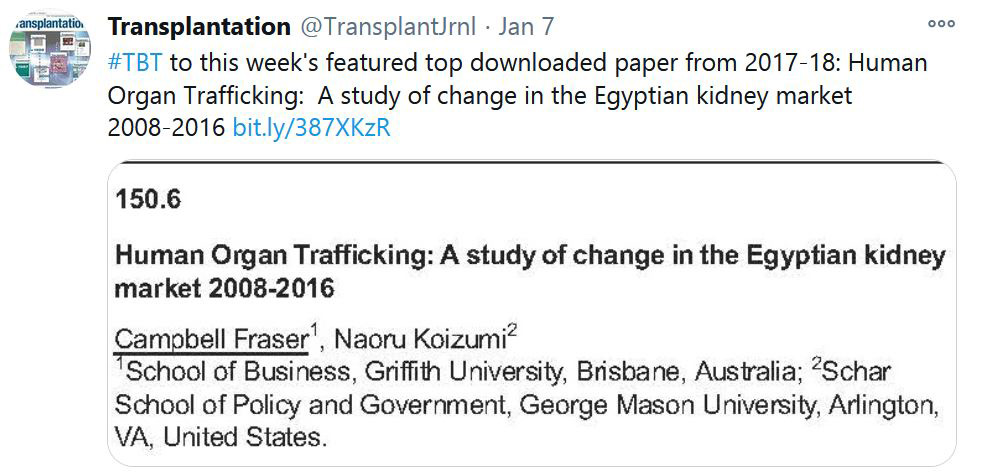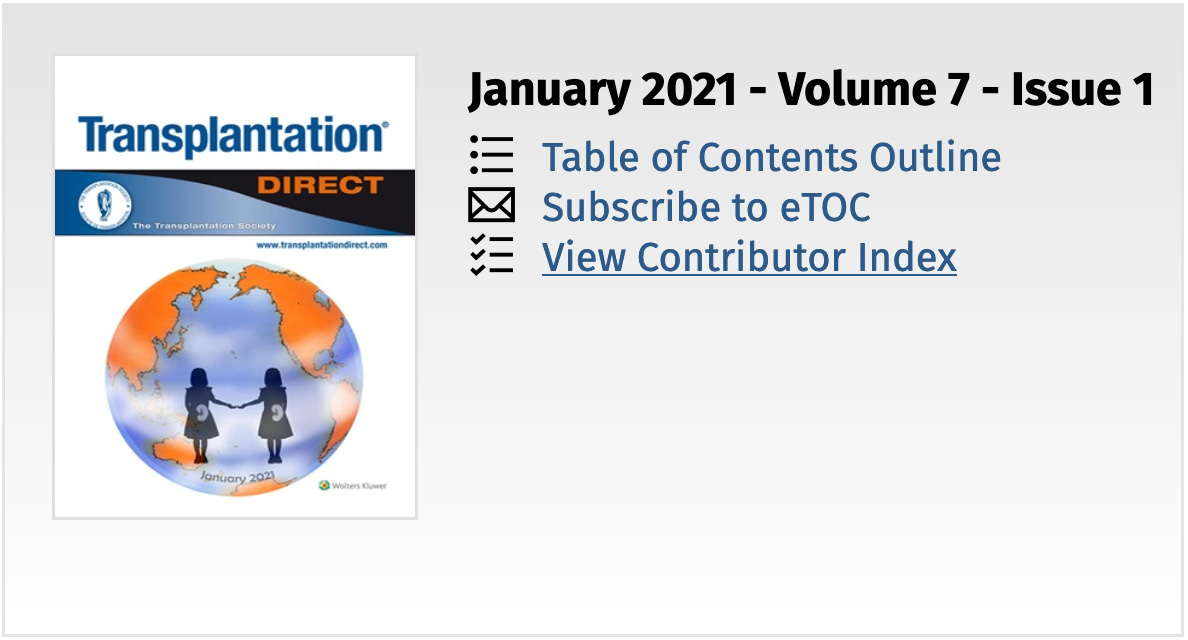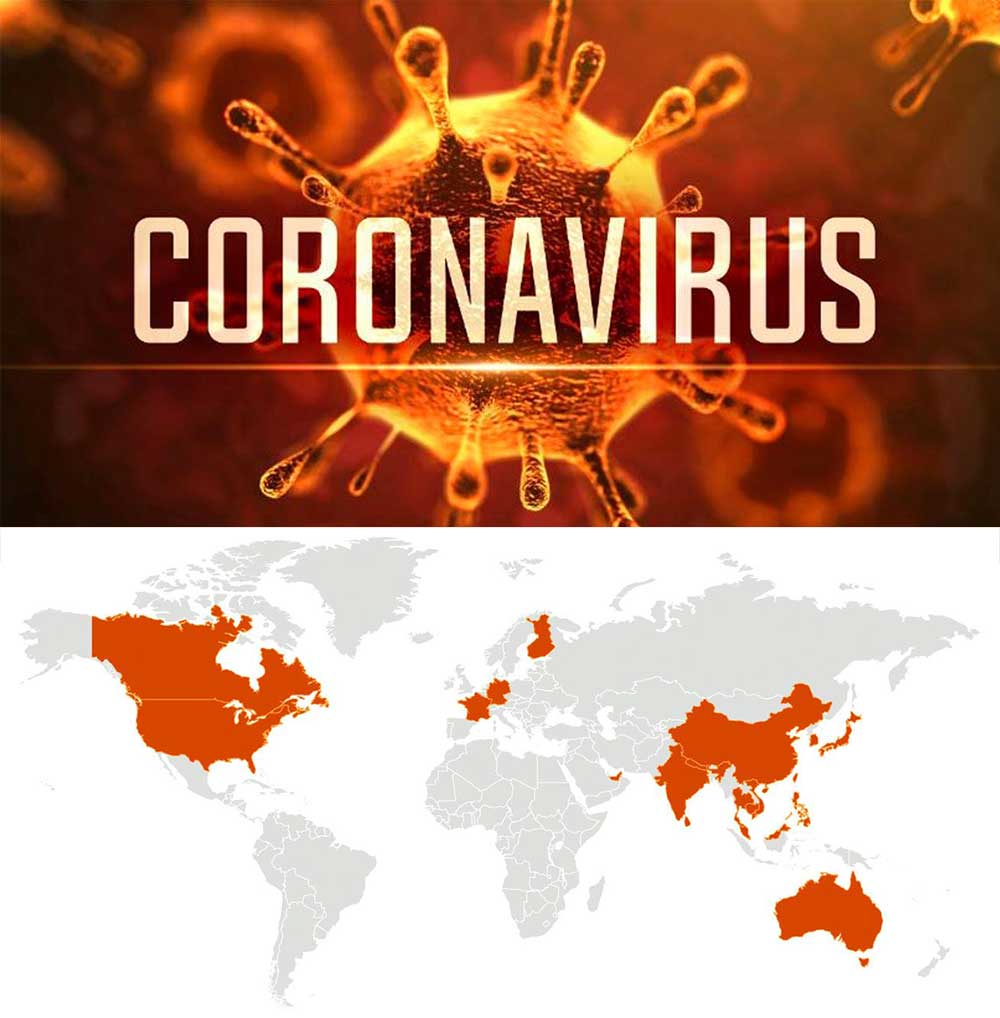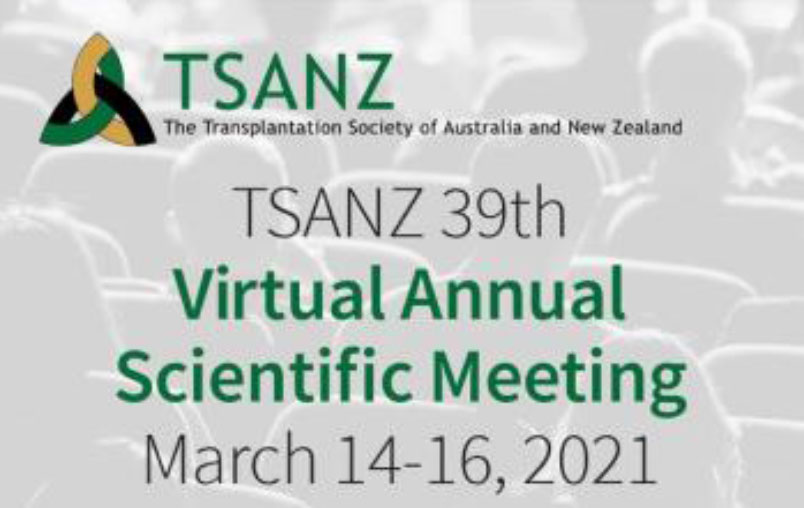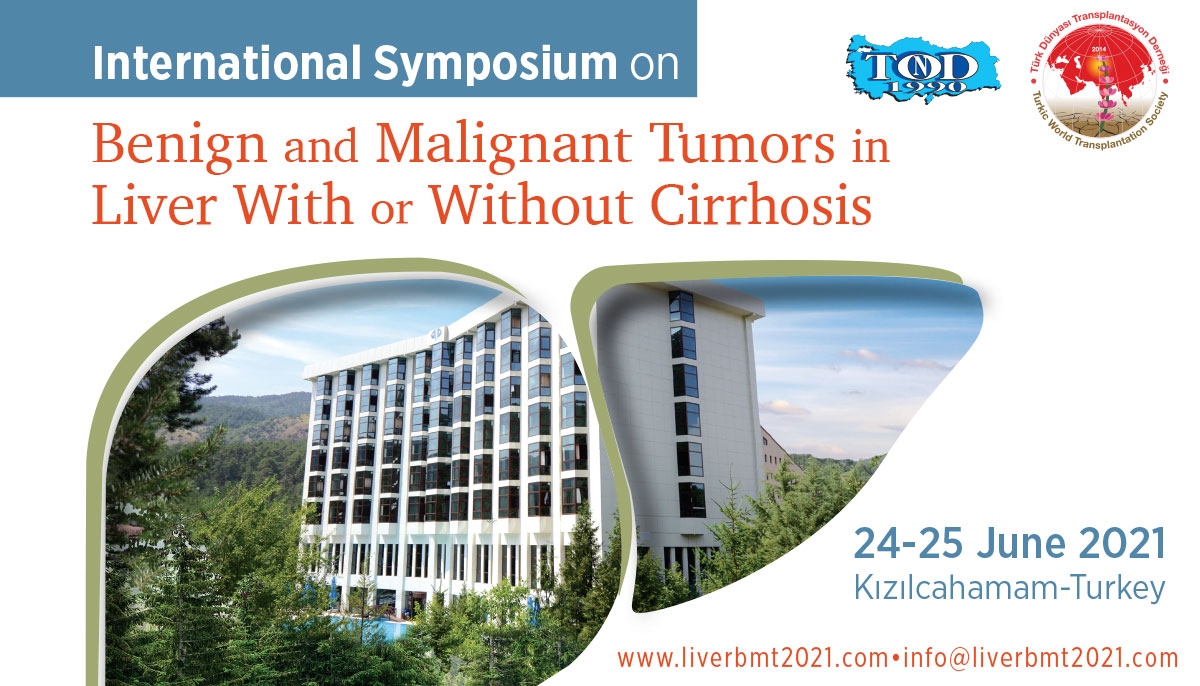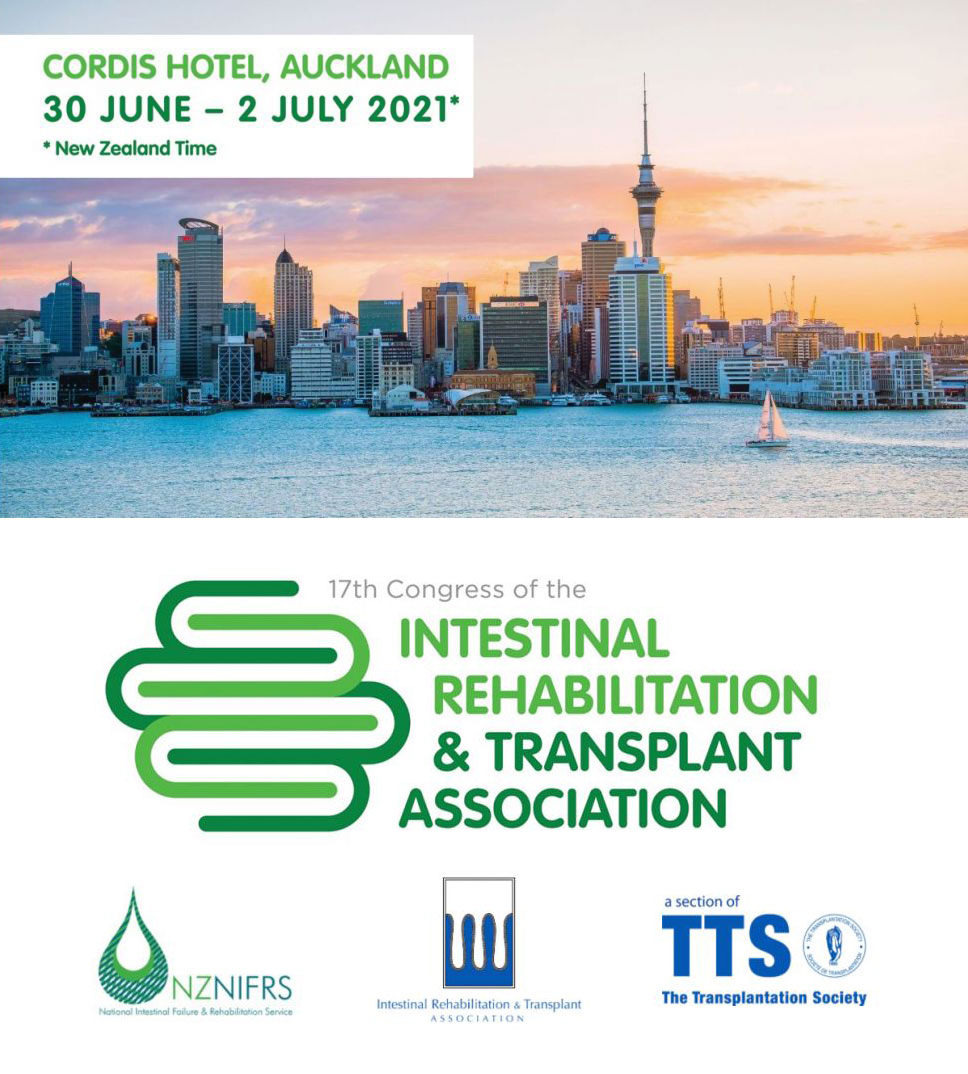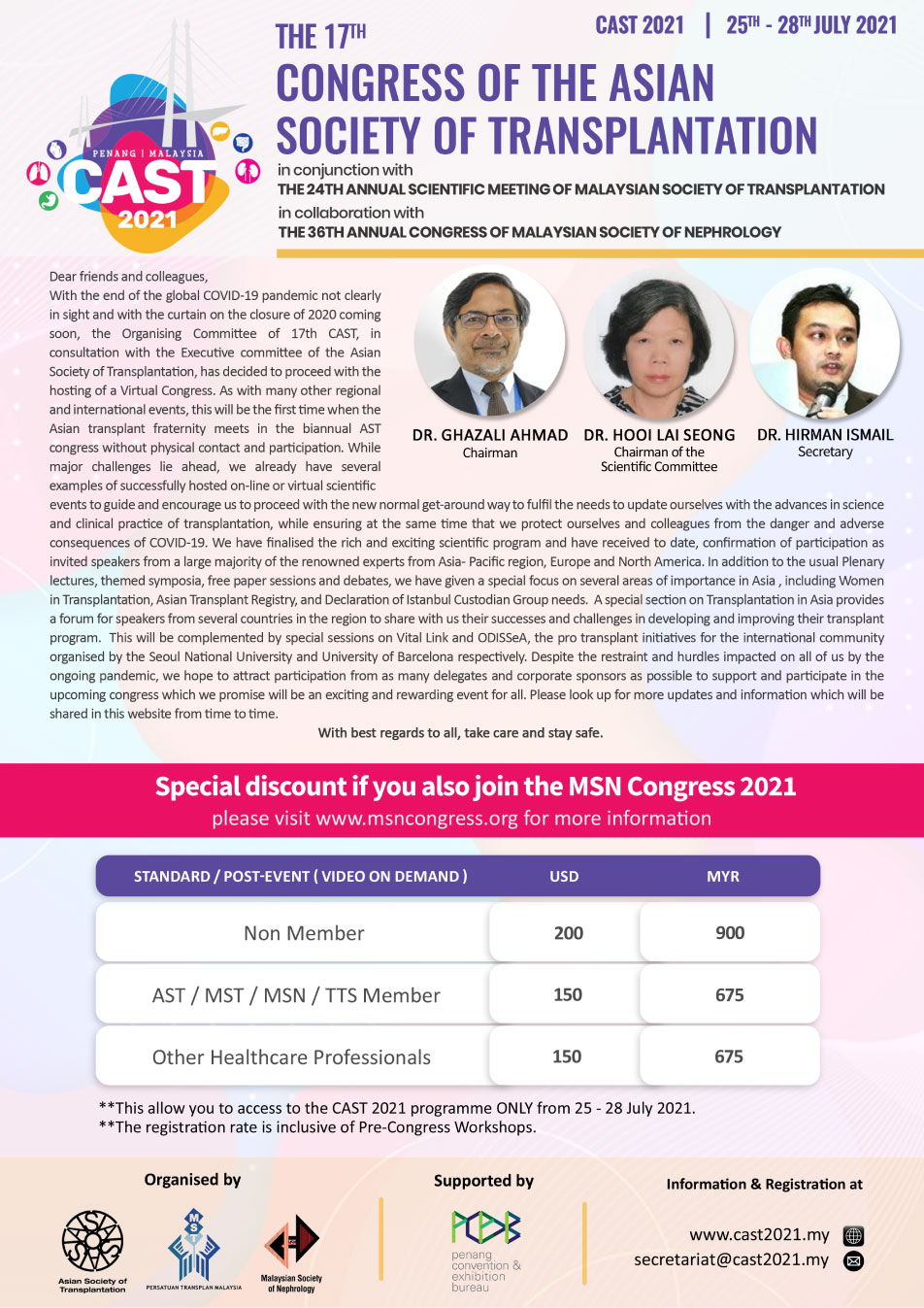

Transplantation Editorial Fellowship

The Editors of Transplantation and Transplantation Direct are seeking expressions of interest for the role of Editorial Fellow.
The Fellowship is designed for an early career professional in transplantation interested in being on the frontlines of Transplantation, the most cited journal in transplantation, and Transplantation Direct, our open access journal.
The Fellowship is for two years and designed to provide training and experience in scientific publishing. You will see the inner workings of an academic journal, from recruiting and selecting peer reviewers to participating in publication decisions. The role of the Editorial Fellow is multi-faceted and includes: assisting one of the Executive Editors (Clinical Science, Basic Science, Statistics, Liver, Transplantation Direct), assisting the Journals’ social media program in the journal’s four social media platforms (YouTube, Twitter, Facebook, LinkedIn), attending scholarly meetings to prepare reports and editing special features.
To be considered for the Fellowship, applicants will have a demonstrated commitment to a career in transplantation and probably be a recent graduates of surgical or medical residencies or have completed post-doctoral studies or research fellowship. Applicants will have excellent writing ability and strong communication skills. You will respect deadlines since the journal will not wait for you, so the ability to carve out time in your busy clinical and academic schedules will be a skill that you will need to have or develop.
We invite applications from interested candidates. Please submit your letter or video application with your CV to editorialoffice@journal.tts.org. The deadline for applications is 1 March 2021. In publishing, the art is to say more with less.
Jeremy Chapman
Editor in Chief Transplantation Journals
editorialoffice@journal.tts.org
TRANSPLANTATION - WEEK'S MOST DOWNLOADED PAPER
JUST RELEASED - TRANSPLANTATION DIRECT - JANUARY ISSUE
The first issue of Transplantation Direct in 2021 is available. The COVID-19 crisis continues to influence our organ transplantation field, with the experience in Paris being evaluated in a letter to the editor. In kidney transplantation, we have an article describing infection risks in a cohort of patients receiving treatment for chronic active antibody-mediated rejection. There are a number of articles involving liver transplantation, including a report on the effects of using pre-transplant DAA therapy in recipients with hepatocellular carcinoma and hepatitis C. Current surveillance practices in the US for monitoring hepatocellular carcinoma recurrence in liver transplant recipients are also evaluated. In addition, investigators report on the relationship of biliary strictures to early or late hepatic artery stenosis. A novel pyloric to segment 4 arterial reconstruction technique is described for segmental liver grafts. In addition, there is a report on the effects of midodrine usage on simultaneous liver-kidney transplant outcomes, and another article focuses on the impact of donor CMV status on liver transplant recipients. In heart transplantation, impact of the October 2018 UNOS allocation criteria on practices and outcomes are assessed, and there is a commentary to accompany this article. We have a short report on informative cases of managing metastatic donor-derived malignancies in simultaneous pancreas-kidney transplant recipients. Also, pancreas procurement in the case of dorsal pancreas agenesis is described in a report. Regarding organ donation, the first North American program (LEADDR: Nova Scotia) of presumed organ donation consent is presented. Please see our website for open access to all the articles in this Transplantation Direct January 2021 issue.
TRANSPLANTATION - HIGHLIGHTED ARTICLE
Dr. Jeremy R. Chapman, Editor-in-Chief, Transplantation
What do transplant programs do in the absence of good clinical trial data on any important aspect of care? The usual answer is either do what they did last time, as long as it didn’t lead to disaster, or let individual preferences guide therapy… Perhaps we can do better for post operative fluid management of a renal transplant, but based on the data accumulated and assessed by the Committee on Transplant Anesthesia of the ASA, the answer is that, despite the easy potential for recruitment to a study, we lack clarity! They make four strong recommendations for fluid management in kidney transplantation: i) Do not routinely use albumin over crystalloids; avoid the use of starch; do not use central venous pressure as an endpoint for fluid administration; and balanced crystalloid solutions are at least equal, if not better, than 0.9% saline. They also make a weak recommendation against the use of large volume fluid administration or “high CVP” to ‘drive the kidney. Similar principles should be used for both deceased-donor and living-donor kidney transplantation. Fortunately there are trials recruiting which may help us move forward at least 60 years after we could have resolved the issues!
Fluid Management During Kidney Transplantation: A Consensus Statement of the Committee on Transplant Anesthesia of the American Society of Anesthesiologists
Wagener G, Bezinover D, Wang C, et al.
Transplantation: December 14, 2020 - Volume Online First
Urine the Right Direction: The Consensus Statement from the Committee on Transplant Anesthesia of the American Society of Anesthesiologists on Fluid Management During Kidney Transplantation
Weinberg L, Collins MG, Peyton P
Transplantation: December 14, 2020 - Volume Online First
Members were emailed their invoices a month ago.
If you are not a member click the Join TTS button below!
CORONAVIRUS (COVID-19) UPDATES
TID COVID-19 Guidance Focused Review on SARS-CoV-2 Vaccines in Transplant Recipients
KEY POINTS:
- Transplant recipients may be vaccinated with any of the COVID-19 vaccines (except LAV and VVr vaccines), as soon as they become approved and available.
- All transplant recipients should receive the vaccine, irrespective of past COVID-19 infection or positive SARS CoV-2 antibodies. Case reports of reinfection in immunocompromised patients suggest that protection after a first infection is inadequate or wanes over time.
- For SOT recipients, the ideal timing of vaccination is uncertain in the post-transplantation setting. Vaccination should be delayed at least one month from transplant surgery. A risk-benefit assessment should weigh the community transmission risks against the likelihood of side effects.
- For HSCT, in regions with accelerated transmission rates, COVID-19 vaccination may start at the 3rd month of HSCT. In regions where the risk of community acquisition of Covid-19 is lower, it is reasonable to wait until the sixth month after HSCT when better vaccine response is expected.
- SOT and HSCT candidates should also receive the COVID-19 vaccine. The concomitant administration of COVID-19 vaccines with other vaccines has not been studied. A few national guidelines advise separating them from other vaccines by at least 2 weeks. It is not yet known if antibodies persist post-transplant or if revaccination is required.
- Transplant recipients are at risk of poor outcomes with COVID-19. Ideally, they should be prioritized for early vaccination, as allowable by local health authorities.
- Consider prioritizing household contacts of transplant recipients with recipients as transmission rates within households have been shown to be high.
- Note: The response to most vaccines are less robust in transplant recipients, compared with healthy persons. Recent use of T- and B-cell-depleting agents have also been associated with muted immune responses to vaccination. Transplant recipients who have received the COVID-19 vaccine should continue to observe all current preventive measures, such as masking, hand hygiene and safe distancing.
«HOT OFF THE PRESS»
RECENT PUBLICATIONS IDENTIFIED BY TTS EDUCATION COMMITTEE ON COVID-19
Immunological memory to SARS-CoV-2 assessed for up to 8 months after infection
Jennifer M. Dan et al.
Science, January 6, 2021. DOI: 10.1126/science.abf4063
This study analyzed multiple compartments of circulating immune memory to SARS-CoV-2 in 254 samples from 188 COVID-19 cases, including 43 samples at ≥ 6 months post-infection. IgG to the Spike protein was relatively stable over 6+ months. Spike-specific memory B cells were more abundant at 6 months than at 1 month post symptom onset. SARS-CoV-2specific CD4+ T cells and CD8+ T cells declined with a half-life of 3-5 months. By studying antibody, memory B cell, CD4+ T cell, and CD8+ T cell memory to SARS-CoV-2 in an integrated manner, the authors observed that each component of SARS-CoV-2 immune memory exhibited distinct kinetics.
Early High-Titer Plasma Therapy to Prevent Severe Covid-19 in Older Adults
Romina Libster et al.
NEJM. January 6, 2021. DOI: 10.1056/NEJMoa2033700
This is a a randomized, double-blind, placebo-controlled trial of convalescent plasma with high IgG titers against severe acute respiratory syndrome coronavirus 2 (SARS-CoV-2) in older adult patients within 72 hours after the onset of mild Covid-19 symptoms. A total of 160 patients underwent randomization. In the intention-to-treat population, severe respiratory disease developed in 13 of 80 patients (16%) who received convalescent plasma and 25 of 80 patients (31%) who received placebo (relative risk, 0.52; 95% confidence interval [CI], 0.29 to 0.94; P=0.03), with a relative risk reduction of 48%. A modified intention-to-treat analysis that excluded 6 patients who had a primary end-point event before infusion of convalescent plasma or placebo showed a larger effect size (relative risk, 0.40; 95% CI, 0.20 to 0.81). No solicited adverse events were observed.
6-month consequences of COVID-19 in patients discharged from hospital: a cohort study
Chaolin Huang et al.
Lancet. January 8, 2021. https://doi.org/10.1016/S0140-6736(20)32656-8
In total, 1733 of 2469 discharged patients with COVID-19 were enrolled after 736 were excluded. Patients had a median age of 57·0 (IQR 47·0–65·0) years and 897 (52%) were men. The follow-up study was done from June 16, to Sept 3, 2020, and the median follow-up time after symptom onset was 186·0 (175·0–199·0) days. Fatigue or muscle weakness (63%, 1038 of 1655) and sleep difficulties (26%, 437 of 1655) were the most common symptoms. Anxiety or depression was reported among 23% (367 of 1617) of patients. The proportions of median 6-min walking distance less than the lower limit of the normal range were 24% for those at severity scale 3, 22% for severity scale 4, and 29% for severity scale 5–6. The corresponding proportions of patients with diffusion impairment were 22% for severity scale 3, 29% for scale 4, and 56% for scale 5–6, and median CT scores were 3·0 (IQR 2·0–5·0) for severity scale 3, 4·0 (3·0–5·0) for scale 4, and 5·0 (4·0–6·0) for scale 5–6. Of 94 patients with blood antibodies tested at follow-up, the seropositivity (96·2% vs 58·5%) and median titers (19·0 vs 10·0) of the neutralizing antibodies were significantly lower compared with at the acute phase. 107 of 822 participants without acute kidney injury and with estimated glomerular filtration rate (eGFR) 90 mL/min per 1·73 m² or more at acute phase had eGFR less than 90 mL/min per 1·73 m² at follow-up.
TTS and TTS Sections News
SPLIT Allied Health Professionals Webinar
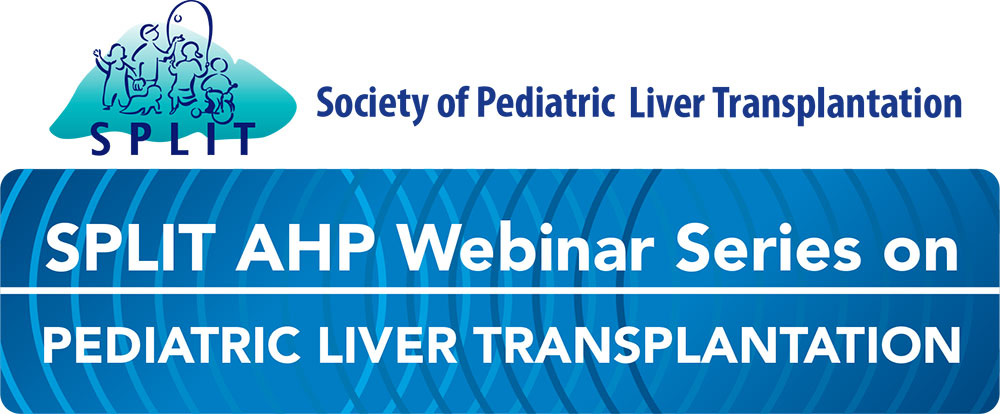
TITLE: Hospital Discharge Following Transplantation: There Is No Place Like Home

The participant will identify the impact of clinical research on patient outcomes in the area of transition from hospital to home and chronic illness care for parents of pediatric solid organ transplant recipients.
Objectives:
- Associations between hospital processes and post-discharge outcomes.
- Challenges experienced by families of children with complex medical conditions as they transition home from the hospital.
- Strategies to improve the discharge transition for transplant families.
Women in Transplantation in Asia

Dear Women in Transplantation and TTS members,
In the spirit of continuing to support transplantation professionals worldwide, Women in Transplantation (an Initiative of The Transplantation Society) is delighted to announce a series of webinars in collaboration with the Asian Society of Transplantation (an Affiliated Society of The Transplantation Society).
These webinars will take place on Thursday January 28th 2021 and Thursday February 25th 2021.
- Dr. Roslyn Mannon (Women in Transplantation, Chair) will act as Chair for Session 2 on Thursday January 28th 2021.
- Dr. Germaine Wong (Women in Transplantation, Pillar 2 Chair) will close the session on Thursday January 28th, and will act as Vice-Chair for Session 1 on Thursday February 25th 2021.

New Two-Year WIT Fellowship Grant Program
Women in Transplantation (WIT) initiative of The Transplantation Society will provide funding to an Early Career Researcher to support research focusing on sex and gender issues relevant to solid organ transplantation.
This initiative was made possible with support with One Lambda, a Thermo Fisher Scientific brand, and Sanofi, with each supporting one award.

The spectrum of studies includes basic, clinical and translational. This individual should have spent two years or less performing research relevant to solid organ transplantation since obtaining their last degree (PhD, MD, MSc, PharmD, or equivalent). This work may represent a continuation of current research or a novel aspect of work. The mentor should have expertise in transplantation or immunology but need not be an investigator with known expertise in gender or sex.
IN THE NEWS
New clues on why pregnancy may increase risk of organ transplant rejection
Jan. 4 - Study finds that one arm of the immune system becomes tolerant to a fetus while the other becomes sensitized, providing new insights on how prior pregnancies can create challenges for transplant recipients.
Challenges Facing Transplant Patients in COVID-19 Era
Jan. 5 - Transplant patients have an increased risk of developing severe illness when infected with the novel coronavirus. Reports indicate a mortality rate of up to 28% among solid organ transplant patients hospitalized with coronavirus disease 2019 (COVID-19).
Improvements Seen in Allogeneic Stem Cell Transplantation-Related Mortality
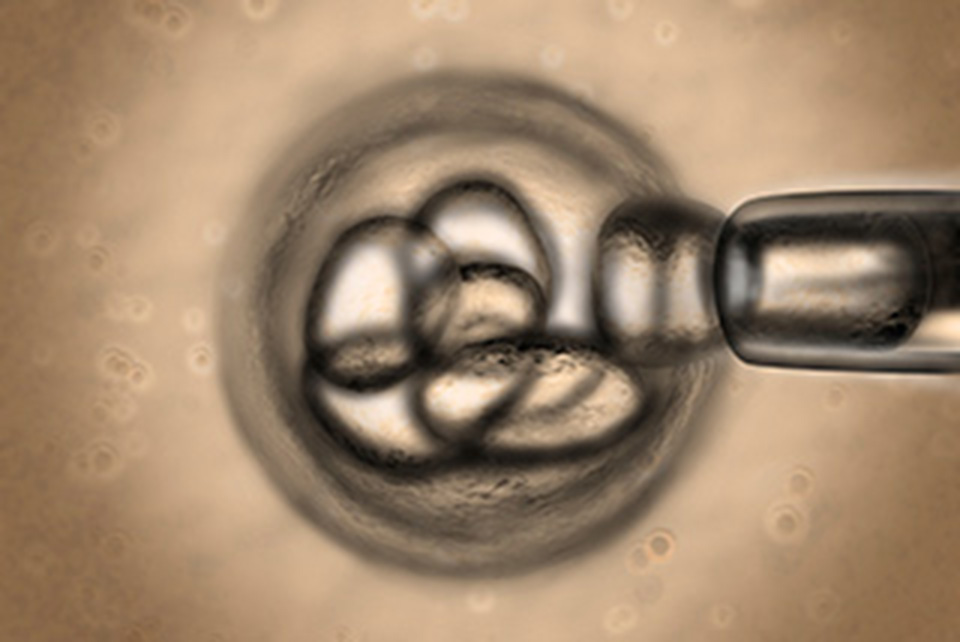
Jan. 6 - Among patients undergoing allogeneic stem cell transplantation (allo-SCT), nonrelapse mortality has drastically decreased over the past 4 decades, according to research published in Blood Advances.
Phase 3 Study of Iomab-B With Bone Marrow Transplant in AML to Continue to Full Enrollment
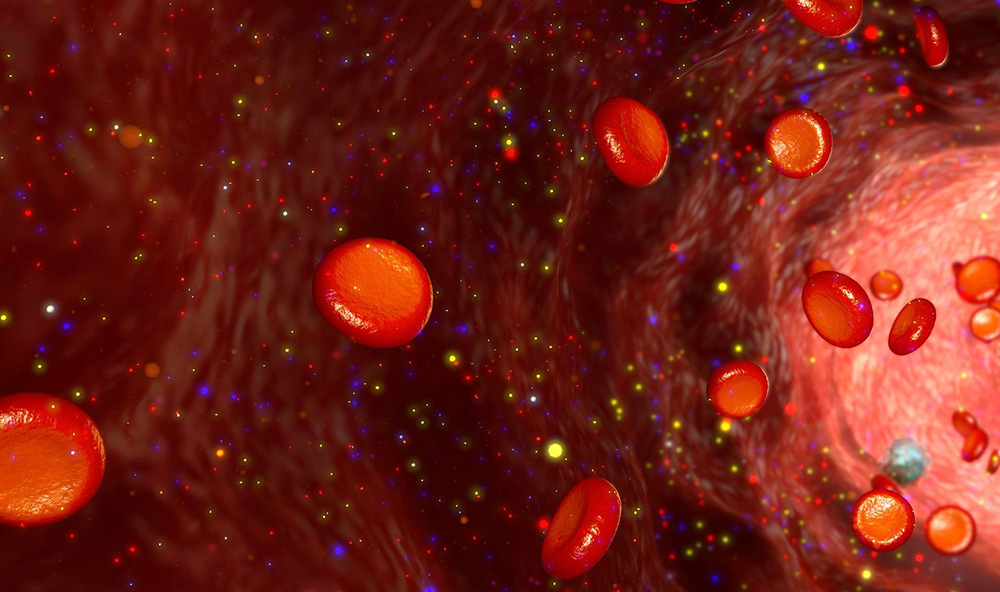
Jan. 5 - An Independent Data Monitoring Committee has recommended the pivotal phase 3 SIERRA study continue as planned to full enrollment of 150 patients based on the findings from a pre-planned ad hoc interim analysis of the study.
Long-term Treatment with Tacrolimus for Kidney Transplantation in People with Lupus Nephritis is Safe and Effective
Jan. 6 - A new Japanese study finds long-term treatment with Tacrolimus (TAC) is effective and well tolerated by people with lupus nephritis (LN) over 5 years. TAC is an immunosuppressant used in kidney transplantation.
UPCOMING MEETINGS AND ANNOUNCEMENTS
39th Annual Scientific Meeting of the Transplantation Society of Australia and New Zealand (TSANZASM 2021)
Applications for the Aviva Rosenfeld, Ian McKenzie and Josette Eris Awards
CLOSE January 15 2021
International Symposium on Benign and Malignant Tumors in Liver With or Without Cirrhosis
17th Congress of the Intestinal Rehabilitation and Transplant Association (CIRTA 2021)
The 17th Congress of The Asian Society of Transplantation (CAST 2021)
17th Congress of the Middle East Society For Organ Transplantation (MESOT 2021)
SAVE THE DATE!
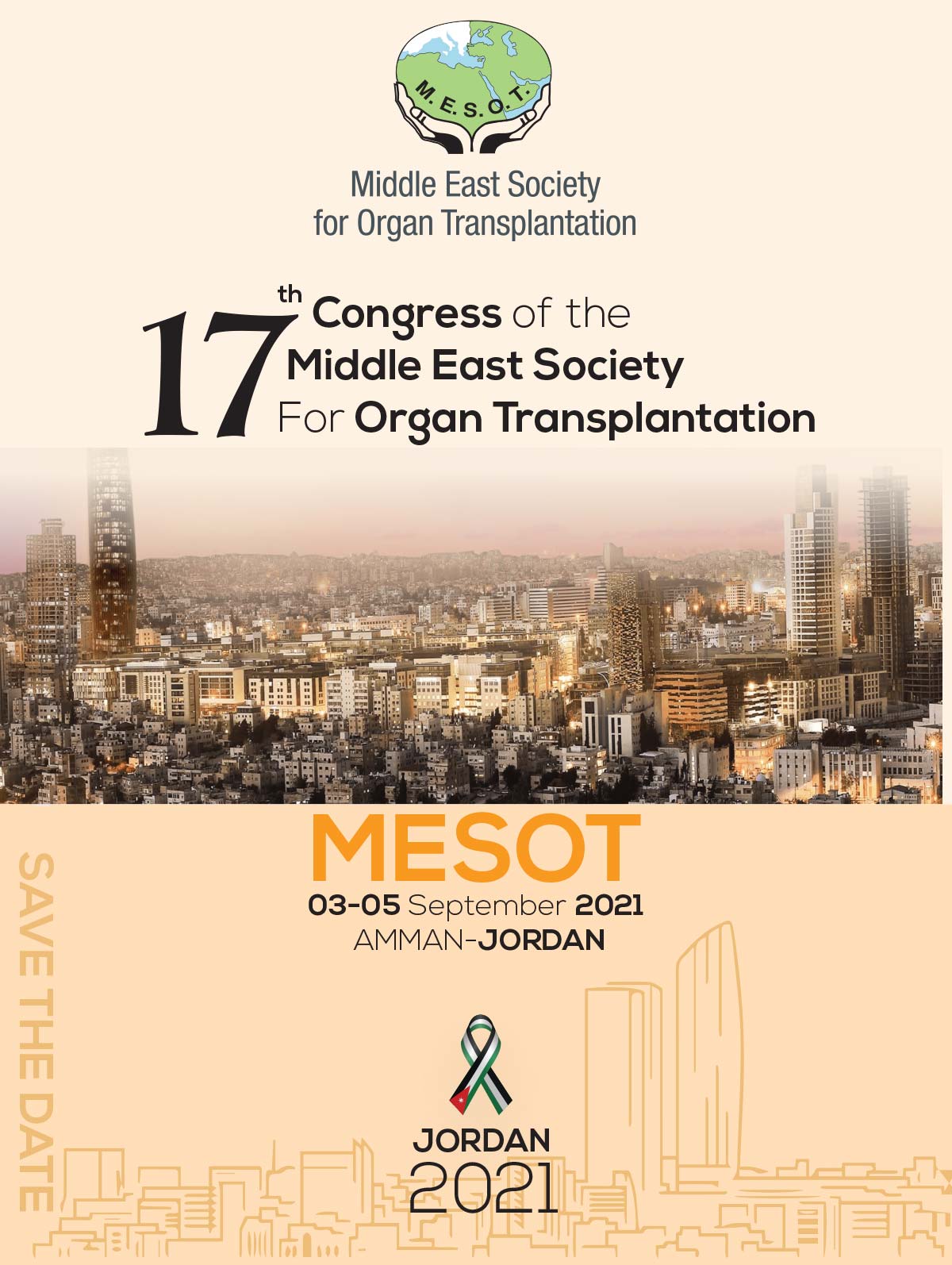
Contact
Address
The Transplantation Society
International Headquarters
740 Notre-Dame Ouest
Suite 1245
Montréal, QC, H3C 3X6
Canada
Используйте Вавада казино для игры с бонусом — активируйте промокод и начните выигрывать уже сегодня!

